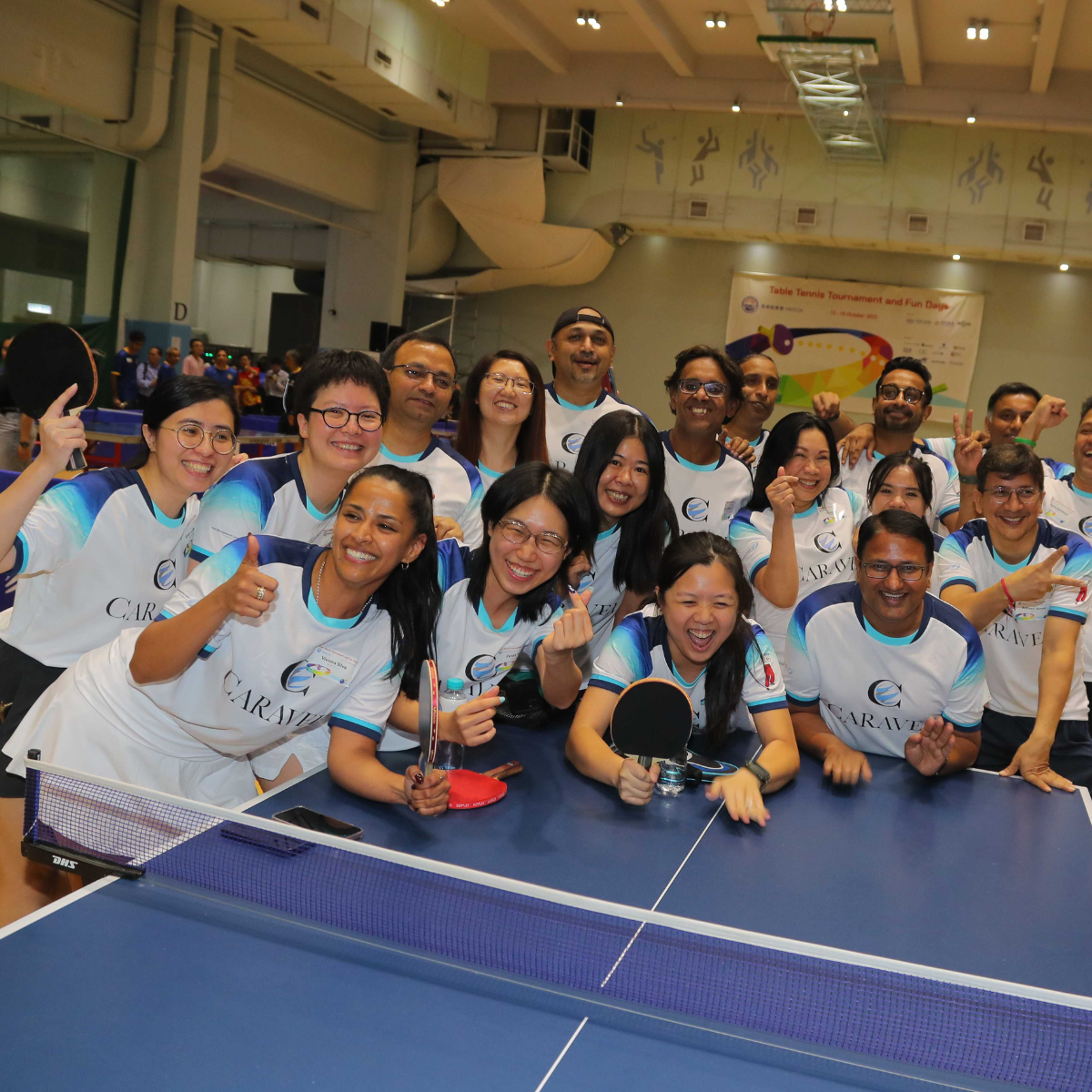
As Fleet Management Limited marks its 30th anniversary, they turn to the future. Angad Banga, Chief Operating Officer of parent company The Caravel Group alongside Fleet’s incoming CEO Captain Raja Subramaniam share their expertise and predictions on what is in store for the maritime industry and the role ship management companies will play.
Among larger themes of decarbonisation and technological disruption driving the agenda, Fleet Management places human capital and talent development at the top of list of priorities.
The world economy relies on 90% of global trade transported by sea, and this in turn relies on the people who power those ships. The maritime industry is facing a significant talent gap which makes human capital development even more critical for the industry’s future. Fleet Management is focused on how to attract new generations to maritime careers and upskill the workforce for the digital age.
“I've been in this industry for the last four decades and what I would like to see is for the sector be more progressive and more collaborative in our approach. We need to position the maritime industry as a whole, including shipbuilding and technology to rise to the next level. We seriously need to elevate to attract talent for the current and future maritime industry.” said Captain Raja
For Fleet Management, it is all about creating and retaining a more inclusive and diverse workplace. This means keeping up the focus on D&I, especially with talented female seafarers, taking a holistic approach to health and well-being, and building a hybrid skill set combining maritime expertise with technological literacy for both onshore and offshore staff.
“The industry is experiencing a digital renaissance which will revolutionise ship management. We can monitor vessel performance in real time, predict maintenance needs early, optimise routes with unprecedented precision, and we are already using AI machine learning to improve safety and efficiency, and reduce environmental impacts,” Angad Banga said.
Fleet recognises that only a skilled future workforce will be required to achieve this. Angad added,
“it's great that you have a Ferrari, but do you have people that can drive that Ferrari?”
The second pillar of Fleet’s futureproofing is innovation integration. Technology improves performance, real time decision making, and better connectivity between ship and shore. It has a critical role in identifying risks and improving safety at sea. Cost efficiency and innovation are not seen as contradictory because the shift towards smart maintenance and planning, including innovative procurement strategies, proactive investments in preventative measures, can improve safety and financial performance.
Lastly, the third priority is decarbonisation and environmental sustainability. Benefiting from Fleet Management’s ‘action over words’ philosophy, this is not a vague sentiment but a goal that requires being compliant, staying ahead of targets, and the leadership to steer the way forward.
With 650 vessels under management, Fleet Management’s sees its role in this journey as identifying trends early and sharing knowledge and experiences to enhance efficiency. It works beyond the traditional client vendor relationships to develop strategic partnerships which help guide their customers to anticipate future needs.
Captain Raja calls on the maritime industry to look further afield at hard to abate industries such as power, cement and steel and challenge itself to be more progressive:
“Have we done enough as an industry? There is talk about the types of fuels we need to use onboard vessels which will come, but there are things that we can do operationally and adopt in the short term. We must do more now. Don’t wait for ‘the best’. Investment risk should be a shared risk by all, including by financial institutions – progressive organisations have already adopted ESG as an agenda – ad it is time to act collaboratively.”
From January 1, 2025, Captain Raja succeeds Dr. Kishore Rajvanshy who has served Fleet Management as its sole Managing Director since the company’s inception thirty years ago, leading it to become the world’s second largest third-party ship management company.
Captain Raja will build on the legacy left by his predecessor while also continuing to innovate and adapt to a rapidly evolving industry.
“Doctor Kishore is a respected person in the industry. and I look forward to gaining further insight from him in his capacity as Advisor beyond January 2025.”
Likewise, Angad pays tribute to his father Dr Harry Banga’s entrepreneurial spirit and his ‘seafarer first’ mindset to decision making, informed by his experience as a master mariner. Angad believes others can learn and benefit from beginning their career at sea.
He said,
“Seafaring equips an individual with the life skills, the discipline and professional qualifications which I think form a very sound foundation for future success. You gain a strong sense of leadership and entrepreneurial skills at a very young age, which cannot easily be replicated.”
The culture and founding principles that drove thirty years of success remain strong, but adaption is key to meet future needs, and adopting technology can help ensure longevity. Building trust and relationships that span decades will also remain vital.
“Trust really is fundamental in our business. You are asking someone to entrust you with a $50 million, $100 million, or $200 million-dollar asset with more than a 20 or 25-year lifespan or investment horizon. And trust earned by consistent delivery of performance and safety.” Angad said.
While thirty years provides a wide range of lessons learnt, the modern age is one that often seems to be reeling from one innovation to the next. Adaptation is key to staying afloat, and adopting technology can help ensure longevity. With this as a focus, alongside a depth of experience, Fleet Management is in good hands as they look to the future.




.jpeg)

.png)
.jpeg)

.svg)